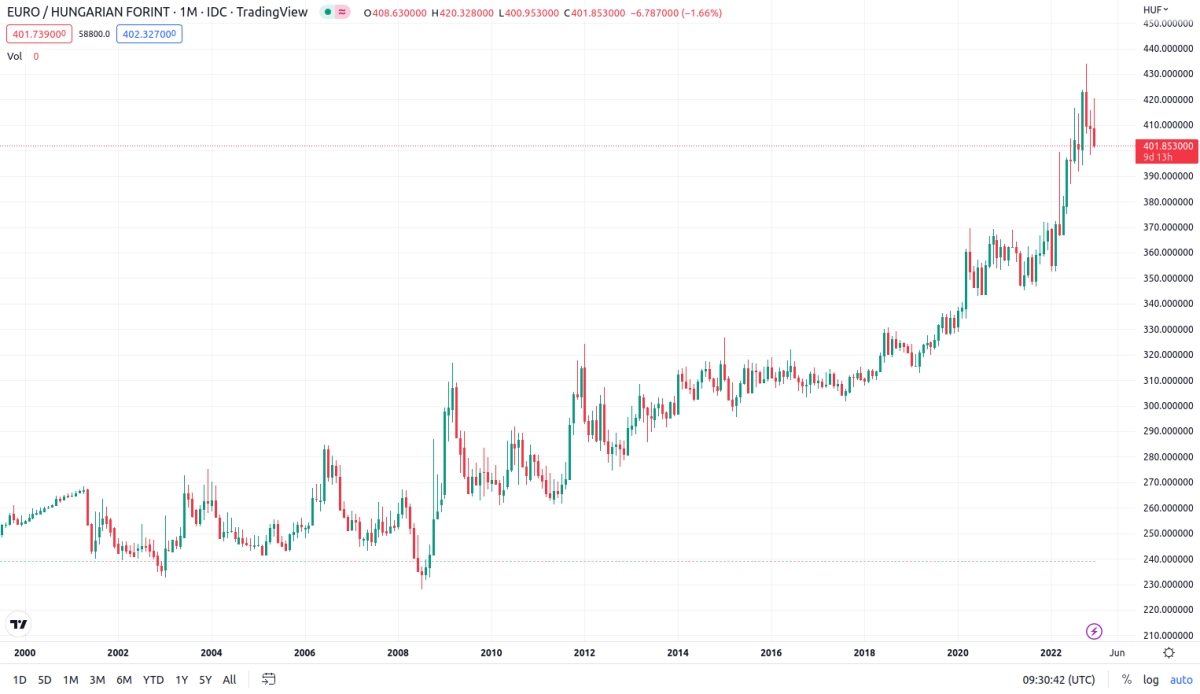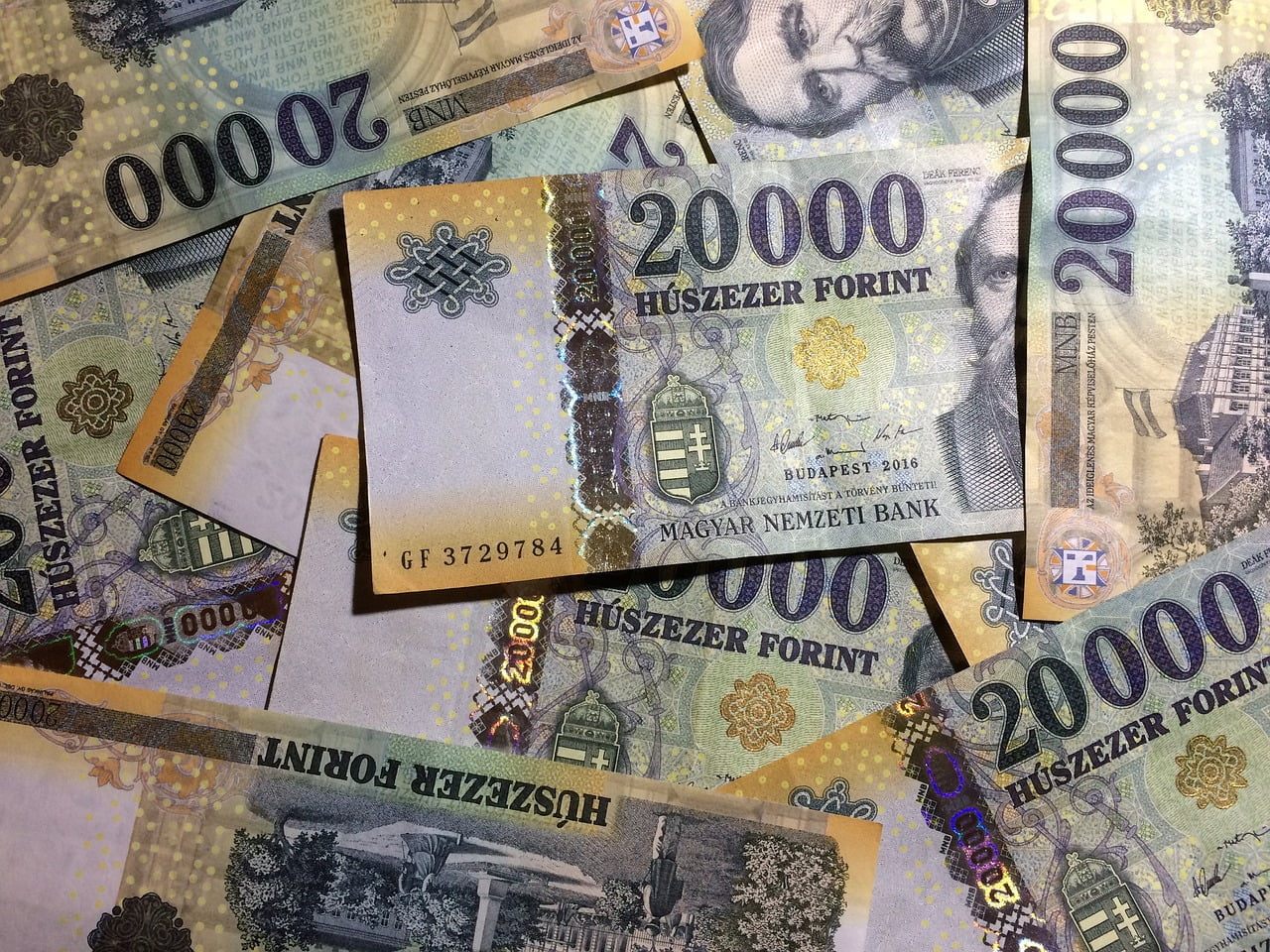The Hungarian Forint is a currency that moves quickly in all directions, mostly downwards. What does that mean? The currency is falling in value compared to bigger and more popular currencies such as the Euro, Dollar, British Pound, Swiss Franc, and smaller currencies such as the Swedish Krone and other currencies.
- Would you like to find out how much one Euro is in Hungarian Forint?
- If the price of a product is 10,000 HUF, how much is that in USD?
It is easy to find an answer to those and similar questions if you use the currency converter available on our page about the currency in Hungary. Not only can you find a currency converter there. You can read about where to exchange money in Budapest, what you need to look out for, the different bills and coins used in Hungary, and also some price examples. Are you only interested in how much you have to pay to buy a Big Mac in Budapest? Click the link to find out.
The HUF compared to other currencies.
Hungary joined the European Union in 2004. At that time, you could buy one Euro for approximately 250 HUF. It was at its strongest in 2008 when you “only” had to pay 230 HUF for one Euro. Since then, however, the general trend is pointing downwards (meaning that the Hungarians don’t like the trend). As a result, you must pay more to buy euros in Hungary.

The last year has been quite terrible for the Hungarian currency, seeing that it has jumped from 350 HUF per euro to a peak of 435 HUF per Euro. The current price as we write this article is 401 HUF per Euro, but to get an accurate number, use the converter below or at the currency page.
What is the value of the Hungarian Forint right now?
Check the actual prices of the Hungarian Forint compared to the USD, Euro, GBP, CHF, NOK, SEK, DKK, and other currencies right now.
Currency Calculator
It is evident that the political situation in Hungary impacts the value of the Hungarian Forint. The present situation in which the Hungarian government often opposes the EU doesn’t help people trust the Hungarian currency. Many people also complain and say that the government doesn’t manage the gas crisis in a good way. To help people, they force shops to sell certain products at lower prices. What is the result? Those products are almost impossible to buy (as they are always sold out), and to earn money, the stores push the prices on all other products much more. In the end, customers pay much more than they did before. It is not a coincidence that inflation in Hungary is among the highest in Europe.
Does this influence you?
If you come to Budapest, you don’t really have to worry. You will get more HUF for your money than you would one year ago. But, at the same time, the prices have increased a lot, meaning that you will pay more in the end anyway. Even though you get 20% more HUF per Euro, you have to pay 50%-100% more for several products, meaning that we all lose. The biggest losers are, of course, the Hungarians.
Do not forget, however, that many stores in Hungary seem to have forgotten about the real value of the Euro. What do we mean?
If you enter a store and buy products that normally cost 1000 HUF, you can nearly always pay with euros. The only problem is that stores still believe that the price of one euro is 350-370 HUF. So, when you pay 1000 HUF which should be approximately 2.5 Euro, you will pay 3 Euro instead (or something like that). In the end, you pay even more than needed. How can you solve this? The best is to pay with card (and set the currency to HUF if asked) or to pay with cash.
If you want Hungarian Forint in cash, the best is to use an ATM. It is possible to use an exchange office as well, but you should avoid those in or near Vaci utca, as those use pretty bad exchange rates.
